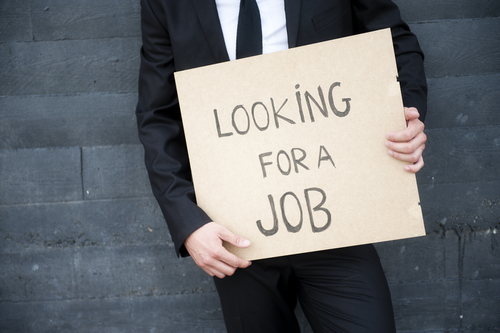AI Poses Jobs Threat, Admits BoE Chief Economist

AI threat. Skills revolution needed to prevent large swathes of people becoming “technologically unemployed”
A senior British financial figure has added to the concern about the arrival of artificial intelligence (AI) and its impact on people’s livelihoods in the years ahead.
The Bank of England chief economist warned that the UK will need a skills revolution to avoid “large swathes” of people becoming “technologically unemployed” as artificial intelligence makes many jobs obsolete.
This is not the first time that concern has been raised about the impact of AI and the so called ‘Fourth Industrial Revolution’. Last year Oxford University researchers warned that roughly 80 percent of jobs in transportation, warehousing and logistics, and 63 percent in sales, are likely to disappear due to automation, with retail employment also at high risk.
![]()
Jobs threat
But now chief economist Andy Haldane has told the BBC that possible disruption from the Fourth Industrial Revolution could be “on a much greater scale” than anything felt during the First Industrial Revolution of the Victorian era.
He reportedly said that he had seen a widespread “hollowing out” of the jobs market, rising inequality, social tension and many people struggling to make a living.
It was important to learn the “lessons of history”, he argued, and ensure that people were given the training to take advantage of the new jobs that would become available.
He added that in the past a safety net such as new welfare benefits had also been provided.
“Each of those [industrial revolutions] had a wrenching and lengthy impact on the jobs market, on the lives and livelihoods of large swathes of society,” Haldane told the BBC Today Programme.
“Jobs were effectively taken by machines of various types, there was a hollowing out of the jobs market, and that left a lot of people for a lengthy period out of work and struggling to make a living,” he said.
“That heightened social tensions, it heightened financial tensions, it led to a rise in inequality,” he reportedly added. “This is the dark side of technological revolutions and that dark-side has always been there.”
“That hollowing out is going to be potentially on a much greater scale in the future, when we have machines both thinking and doing – replacing both the cognitive and the technical skills of humans,” he warned.
Despite this, Haldane said that job losses would be compensated for by the creation of new jobs as a ‘new technological wave’ broke over society.
“That is a much harder number to begin to estimate or guesstimate,” he reportedly said.
“What we can I think say with some confidence, however, is that given that the scale of job loss displacement it is likely to be at least as large as that of the first three industrial revolutions,” he said. “We will need even greater numbers of new jobs to be created in the future, if we are not to suffer this longer-term feature called technological unemployment.”
Haldane said that jobs that focused on skills of human interaction, face-to-face conversation and negotiation would be likely to flourish, but that simple manual jobs would be more at risk.
Job creation?
But others are that the arrival of AI would be a good development for jobs.
Last month a report from PwC suggested the arrival of artificial intelligence would be a win for the UK jobs market, as it would create as many jobs as it displaces by boosting economic growth over the next 20 years.
The PwC report however predicted that there would be a 22 percent rise in jobs in the health sector, and a 16 percent rise in professional, scientific and technical services, coupled with a 6 percent rise in education.
Manufacturing (-25 percent), transport and storage (-22 percent) and public administration (-18 percent) were estimated to see the largest net long-term decrease in jobs due to AI.
PwC predicts that around 7 million existing jobs could be displaced, but around 7.2 million could be created, giving the UK a small net jobs boost of around 0.2 million.
Put your knowledge of artificial intelligence to the test. Try our quiz!